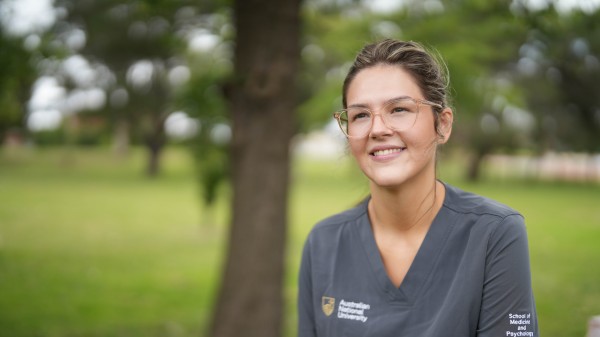The doctor you won't forget
“The intensive care unit can be a very intimidating environment, but it’s a very rewarding environment.”
If you’re in hospital, you don’t want to meet Professor Imogen Mitchell.
And if you do, whether you’re her patient or one of their loved ones, you won’t forget it.
Professor Mitchell is an intensive care specialist at The Canberra Hospital and her patients and their families are, she says, “probably at one of the worst times in their lives.”
“Being in hospital is stressful, but being in intensive care is a milestone that’s never forgotten.”
For Professor Mitchell, this isn’t a doctor’s burden, but a privilege.
“If you can make the experience just one bit better, I think that’s really important.
“One of the ways of doing that is by being able to communicate well when you’re having a difficult conversation.
“This is a skill you develop as a clinician which is a good life skill too. I find I can more easily talk with people because I’ve had so many challenging conversations in the intensive care unit.”
There’s also a skill in being able to attract future doctors to one of the most high-stress specialisations in medicine, which Professor Mitchell does in her teaching role at the ANU Medical School.
“The intensive care unit can be a very intimidating environment, but it’s a very rewarding environment.”
“There’s a huge variation in patients with a large number of diagnoses, so we interact with a whole range of other specialists across the hospital.”
But, she admits, “My memory of being new to intensive care is of being terrified.”
“Luckily I had an extraordinary senior registrar who supported me.
“Similarly, if a student is ever concerned I’d rather know and be a guiding hand, and since ANU is a small medical school there is much more individualised attention to students.
“Plus there are more supports around for medical students these days than there has ever been in my lifetime.”
This is not to say that Professor Mitchell is no longer terrified. Appearing otherwise is just another necessary skill for managing patients in intensive care.
“Although from time to time I’ve felt terrified, my team has never said that I look terrified, so I’m lucky to have developed a skill of masking it well.
“Keeping outward calm is an imperative when you have someone’s life hanging in the balance.”













